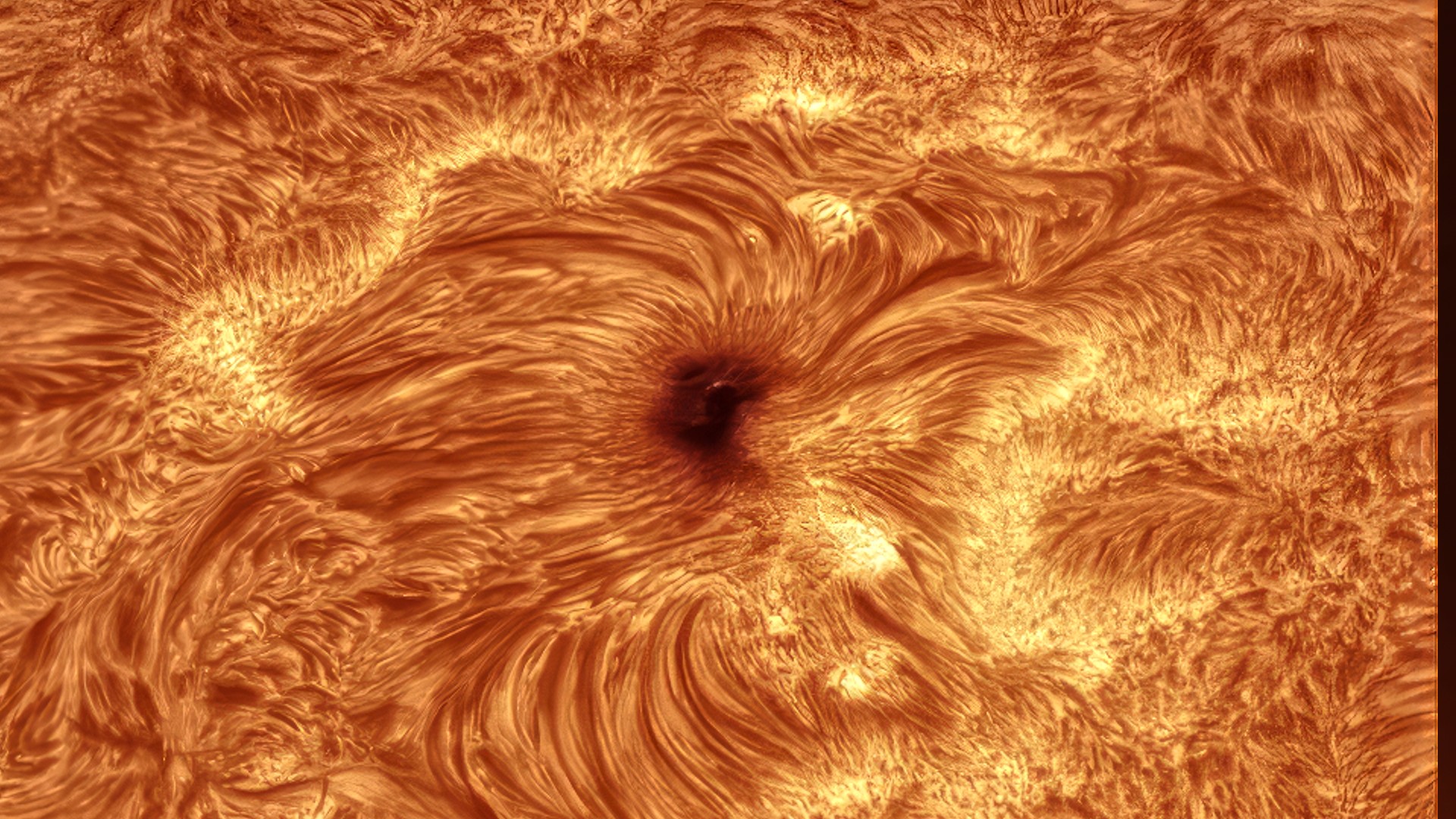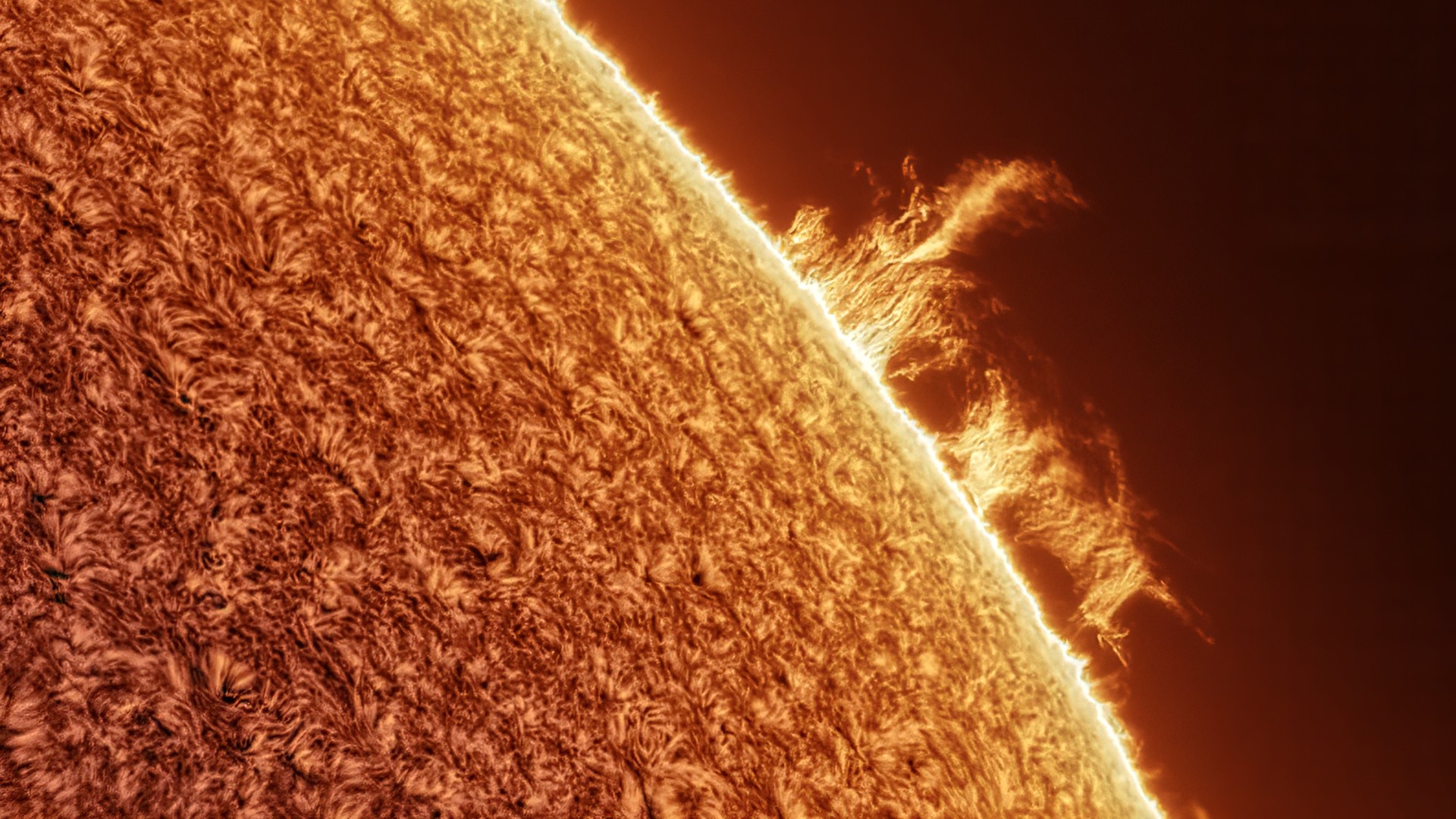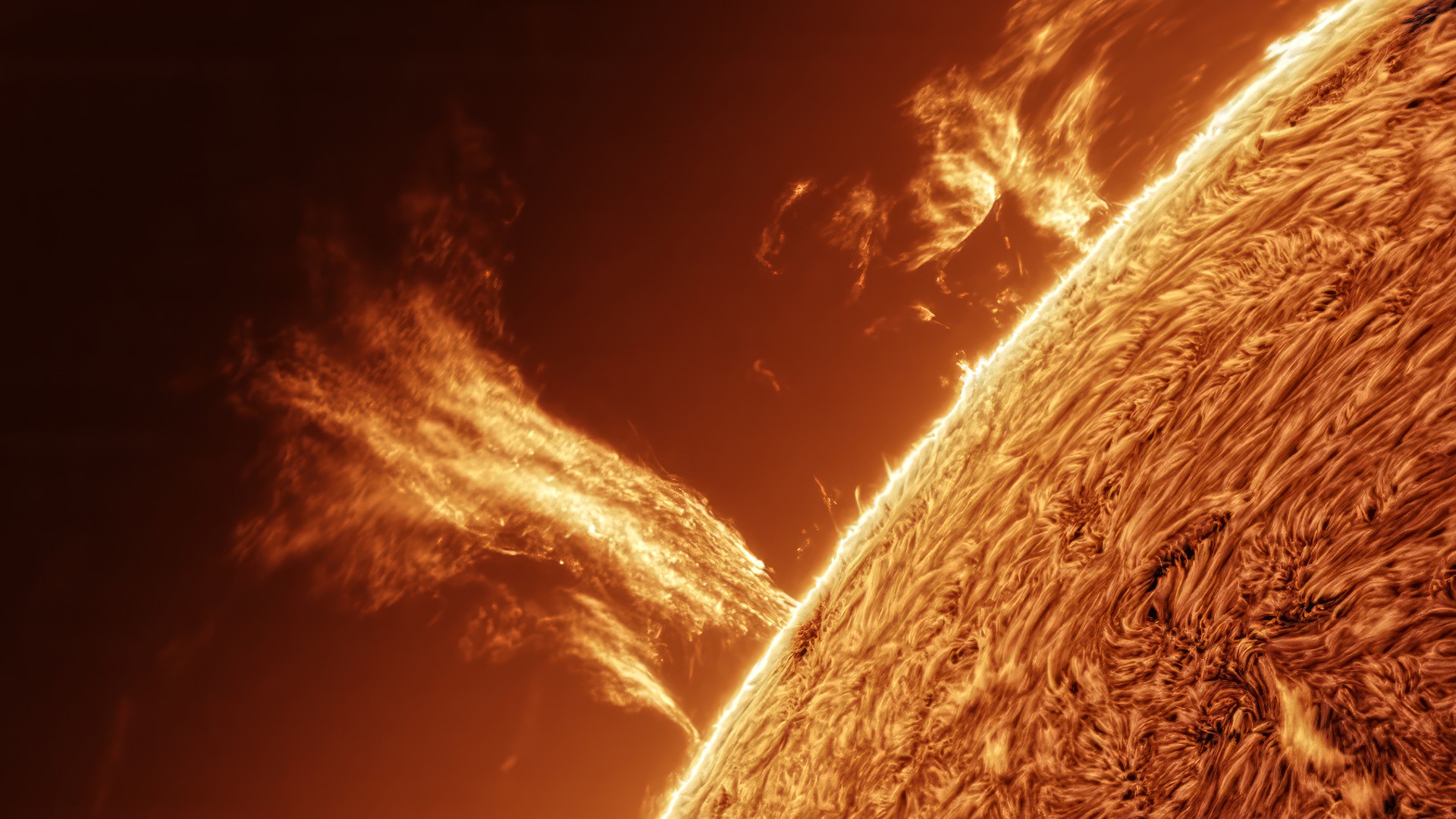
Astrophotographer Mark Johnston got a front row seat to an epic fireworks show.
Johnston, a NASA solar system ambassador and vice president of the Phoenix Astronomical Society, was observing the sun in late August with a custom telescope when he captured images of incredible arcs of plasma (super heated gases) known as solar prominences rising to incredible heights above the surface of our star.
Johnston assembled the images he got of the solar spectacle into the stunning video above. “The height of the largest of the two prominences in the video is about 160K km or 100K miles,” Johnston told Space.com via email.
VIDEO NOT DISPLAYING?
Some ad blockers can disable our video player.
“For the video, I took about 100 540-frame videos 25 seconds apart, so that the time lapse video represents about an hour of real time activity on the sun. Some images in the video are more blurry than others due to momentary changes in atmospheric seeing conditions.
“In general the seeing was good, about 4/5. All images taken by me from my backyard in Scottsdale, Arizona.”
In addition to the epic video, Johnston captured breathtaking stills of the sun’s activity.
“The static images were captured between 16:00-17:00 UT [(12 p.m. ET and 1 p.m. ET)] on Aug. 29,” Johnston said. “Each static image requires taking a 2000-frame high-speed video of 9 millisecond exposures. Then I extract the 200 most in-focus frames and apply further sharpening, denoise and add color.”
Johnston caught some incredible solar fireworks three days prior to shooting the footage above. “In one of them, there is a large triangular blob of plasma ejected by the sun, still faintly connected via plasma that follows magnetic field lines,” Johnston said.
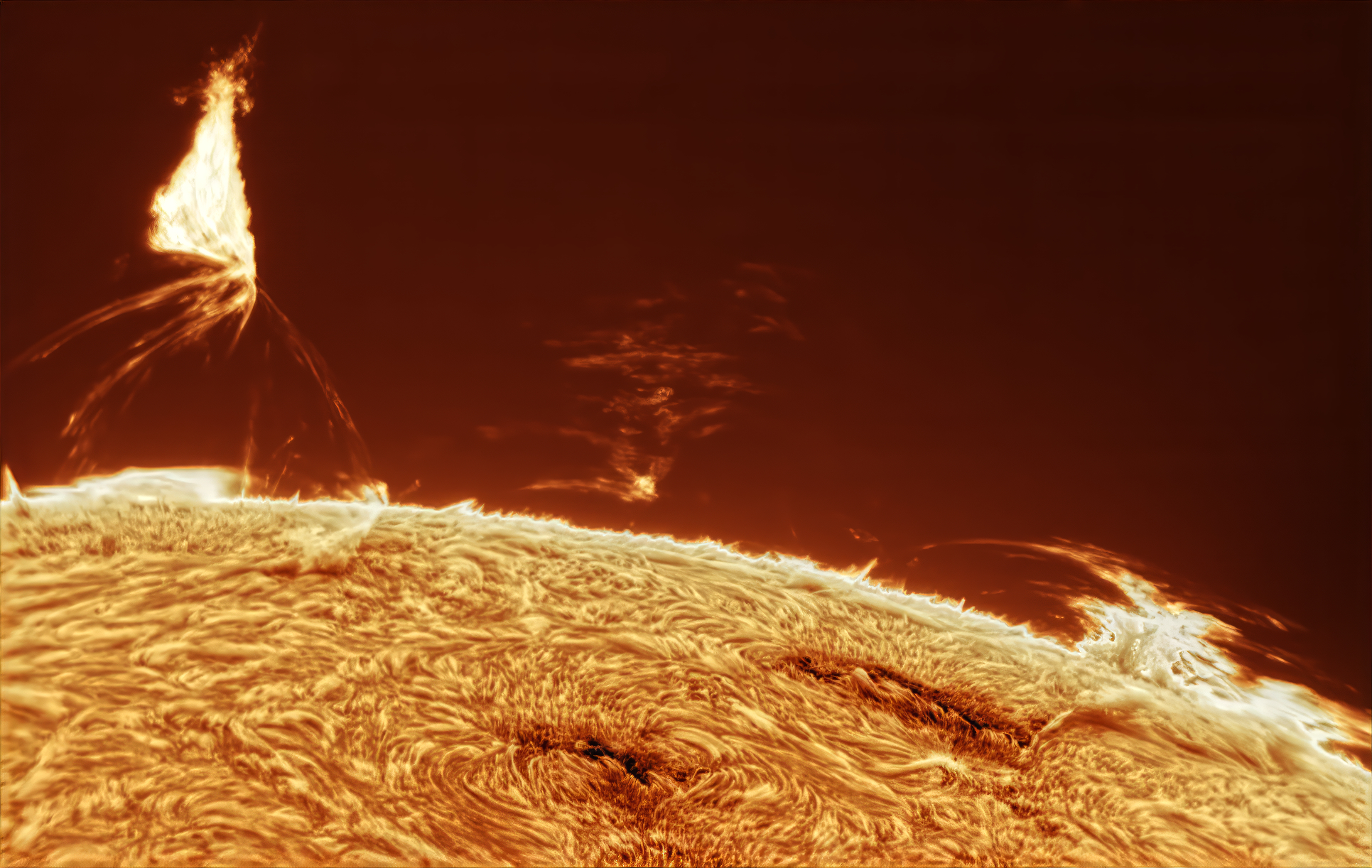
“In the other there is an unusual scythe-shaped prominence.”
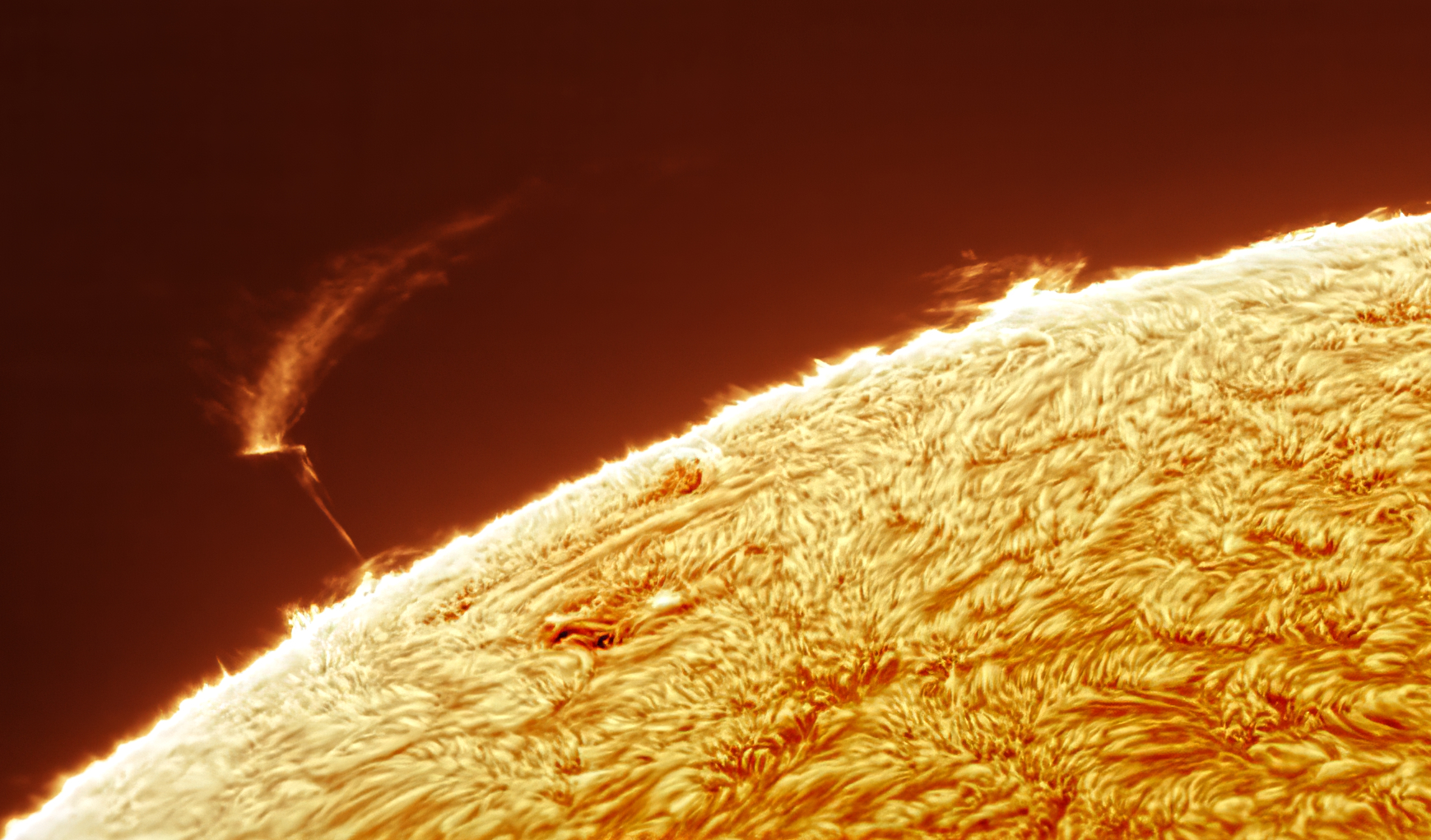
“For all photos I used my TEC160FL refractor which I custom-modified into a double stacked hydrogen-alpha solar telescope,” Johnston wrote.
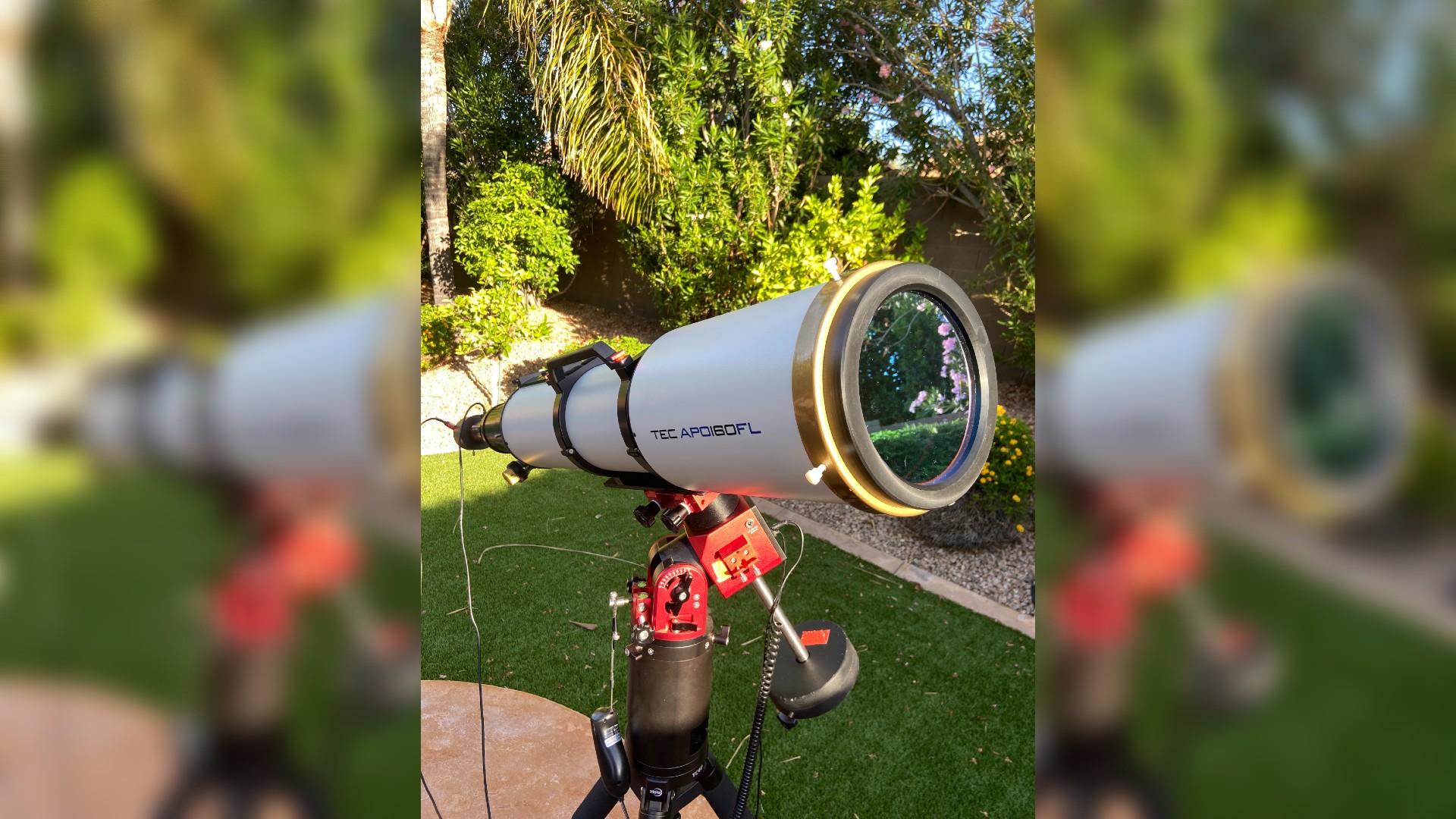
Remember: viewing the sun can be dangerous without the right equipment. Never look directly at the sun with the naked eye, especially through additional optics like telescopes or binoculars. Whatever gear you use, make sure it has a certified solar filter. If you’re just getting started, a smart telescope with a solar filter like the Unistellar Equinox 2 might be your best bet.
Editor’s Note: If you snap an image of the sun – taking all precautions – and would like to share it with Space.com’s readers, send your photo(s), comments, and your name and location to spacephotos@space.com.

